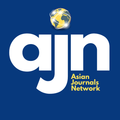Ethical Reflections on the Practice of Pre-Election Polls in Indonesia
Samsul Maarif Mujiharto(1*)
(1) Faculty of Philosophy, Universitas Gadjah Mada
(*) Corresponding Author
Abstract
This paper aims to connect the practice of pre-election polls to moral issues and democracy. Several studies have indicated that pre-election polls have grown to become essential pillars of democracy. The prediction capabilities of pre-election polls can help politicians arrange strategies to listen to the public's voice and win political contestation. However, since the practice of pre-election polls is not only scientific evidence but also political credential, it crosses the blurry boundary where they intersect one another. Consequently, this may exacerbate some pathologies of polls such as method corruption, data manipulation, bandwagon effect, and political mobilization. Focusing on the 2014 and 2019 Indonesia presidential elections, this paper suggests that ethical consideration to ensure the practice of pre-election polls is necessary for bringing the polls back as one of the prime pillars of democracy.
Keywords
Full Text:
PDFReferences
Aditya, A., & Salna, K. (2019). Prabowo Rejects Surveys to Claim Big Lead in Indonesia Election. Bloomberg, April 8, 2019.
Aspinall, E., & Mietzner, M. (2014) Prabowo’s Game Plan. New Mandala, July 10, 2014.
https://www.newmandala.org/prabowos-game-plan/
Brante, T. (2001). Consequences of Realism for Sociological Theory-Building. Journal for the Theory of Social Behaviour 31, no. 2: 167-195.
Blumer, H. (2000). Public Opinion and Public Opinion Polling. American Sociological Review 13(5), 542-549.
Brady, H. E. (2000). Contributions of Survey Research to Political Science. Political Science & Politics 33(1): 47-57.
Buehler, M., & Tan, P. (2007). Party-Candidate Relationships in Indonesia Local Politics: A Case Study of the 2005 Regional Elections in Gowa, South Sulawesi Province. Indonesia, 84: 41-69
Da Costa, A. B. (2019). Indonesian Suspects Detail Alleged Plot to Kill Top Officials. Reuters, June 11, 2019.
Elster, J. (1989). Nuts and Bolts for the Social Science, Cambridge: Cambridge University Press.
Giddens, A. (1976). New Rules of Sociological Method: a Positive Critique of Interpretive Sociologies, New York: Basic Books.
Hacking, I. (1995). The Looping Effect of Human Kinds. Symposia of the Fyssen Foundation. Causal Cognition: a Multidisciplinary Debate, edited by D. Sperber, D. Premack, & A. J. Premack, 351-394. New York: Oxford University Press
Hariyanto, I. (2019). Prabowo Bicara Soal Lembaga Survei dan Penguin di Antartika. Detiknews, April 19, 2019.
https://news.detik.com/berita/d-4517328/prabowo-bicara-soal-lembaga-survei-dan-penguin-di-antartika
Hidayat, R. (2018). Skeptis atas Hasil Survei: Belajar dari Pilpres 2014 & Pilkada DKI. Tirto.id, 29 April 2018. https://tirto.id/skeptis-atas-hasil-survei-belajar-dari-pilpres-2014-pilkada-dki-cjmt
Iswara, M. A., & Ramadhani, N. F. (2019). Prabowo Claims Election Lead, Accuses Pollsters of Being ‘Partisan’. The Jakarta Post, April 17, 2019
Lembaga Survei Indonesia. (2004). Jajak Pendapat dan Pemilu di Indonesia Kinerja Lembaga Jajak Pendapat dalam Meramal Pemilu 1999 dan 2004, unpublished report.
Little, D. (1991). Varieties of Social Explanation: an Introduction to the Philosophy of Social Science, Boulder, CO: Westview Press.
Mietzner, M. (2009) Political Polling in Post-Authoritarian Indonesia Catalyst or Obstacle to Democratic Consolidation. Bijdragen tot de Taal-, Land en Volkenkunde 165(1): 95-126.
Nathalia, T. (2019) Police Arrest Alleged Funder of Plot to Assassinate Four Top Officials. Jakarta Globe, June 12, 2019.
Qodari, M. (2010) The Professionalization of Politics: The Growing Role of Polling Organisations and Political Consultants Problems of Democratisation in Indonesia, edited by Edward Aspinall, 122-140, Singapore: ISEAS-Yusof Ishak Institute.
Tomsa, D. (2020) Public Opinion Polling and Post-truth Politics in Indonesia. Contemporary Southeast Asia 42(1): 1-27.
Trihartono, A. (2013) A Vox Populi Reflector or Public Entertainer? Mass Media Polling in Contemporary Indonesia. Proceedia Environmental Sciences, 17: 928-937.
_____________. (2014) Beyond Measuring the Voice of the People: The Evolving Role of Political Polling in Indonesia’s Local Leader Elections. Shoutheast Asian Studies 3(1): 151-182.
Ufen, A. (2010) Electoral Campaigning in Indonesia: The Professionalization and Commercialization after 1998. Journal of Current Southeast Asian Affairs 29(4): 11-37.
Article Metrics
Refbacks
- There are currently no refbacks.
Copyright (c) 2023 Jurnal Filsafat











